Rohingya Music Online Library
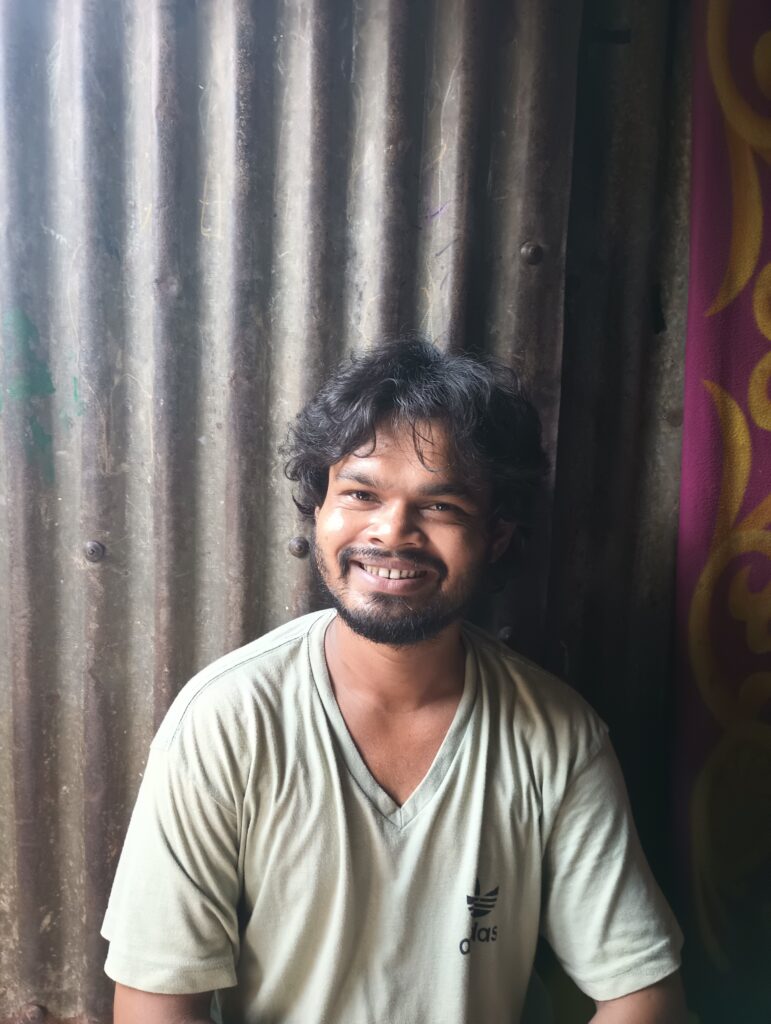
Osman
Osman is Rohingya singer, songwriter, mandolin player, and music teacher. As a performer, he is in demand from community members and international organizations with a YouTube channel that has over 1 million views. He enjoys collaborating and recording with many other musicians in the community. “Music is my weapon” says Osman.
Many of his songs give members of his community important public health information so they can stay healthy. His music is also the way he shows people the dignity of the Rohingya people and the respect they deserve.
Find him at “Arakan Rohingya Tarana” on YouTube and Facebook.
Chal Chal Chal Rohingya Begun Arakanot Chal (“Let’s Go Back to Arakan, with Preparations to Fight for Our Land”) This is an original tarana by Osman.
In 2006, when Osman was young, he bought a flute for 7 BDT (Bangladeshi taka – worth about US$0.20 cents at that time). After buying the flute, he had a dream to become a musician. He asked his mother if she could buy him a mandolin. At that time the cheapest mandolin cost about 100 BDT. His mother was impoverished at that time, and her financial situation very critical. He still remembers his mother’s words: “We’re having a financial crisis. We need all our money just for our food. But don’t give up hope. I will try for you.” To this day Osman doesn’t know how she managed to find the money. But she did. With the 100 BDT his mother somehow found, Osman bought a broken mandolin from someone in a nearby shelter.
At that time, there was little knowledge of Rohingya refugees in the international community, and few if any international aid organizations providing support.
Osman shares the Rohingya proverb about the depth of mothers’ loving care: “Our mothers don’t hold us near their heads for fear lice will bite us, and don’t leave us on the floor for fear the ants will bite us.”
Osman is now a performing musician whose YouTube channel, “Arakan Rohingya Tarana,” has more than 1 million views.
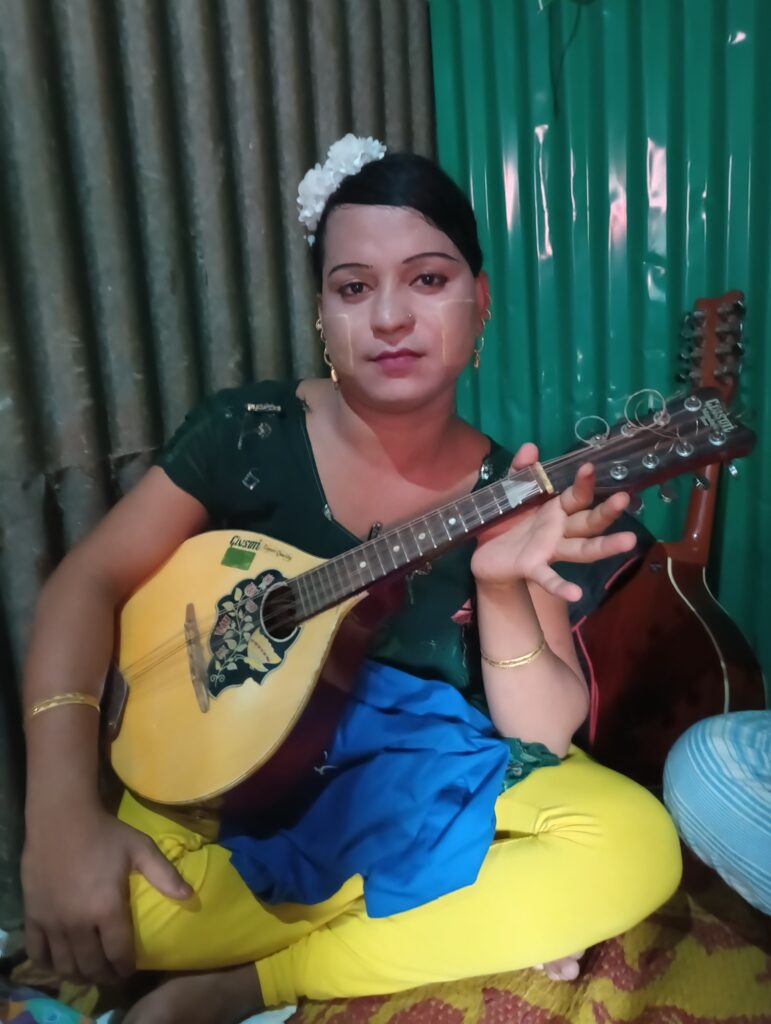
Khaleda
Khaleda is a transgender Rohingya dancer and musician. Khaleda says, “In Myanmar, I could go everywhere. I could dance. Being transgender was no problem.”
Khaleda loves dancing. Her role model was Abulkalam, a transgender Rohingya dancer. There are over 100 transgender Rohingya Refugees in the refugee camps. Khaleda says, “Other transgender women in the camps face discrimination, but as an artist I am accepted.”
This is a Rohingya love song by the legendary Rohingya musician Shobu, sung here by Khaleda.
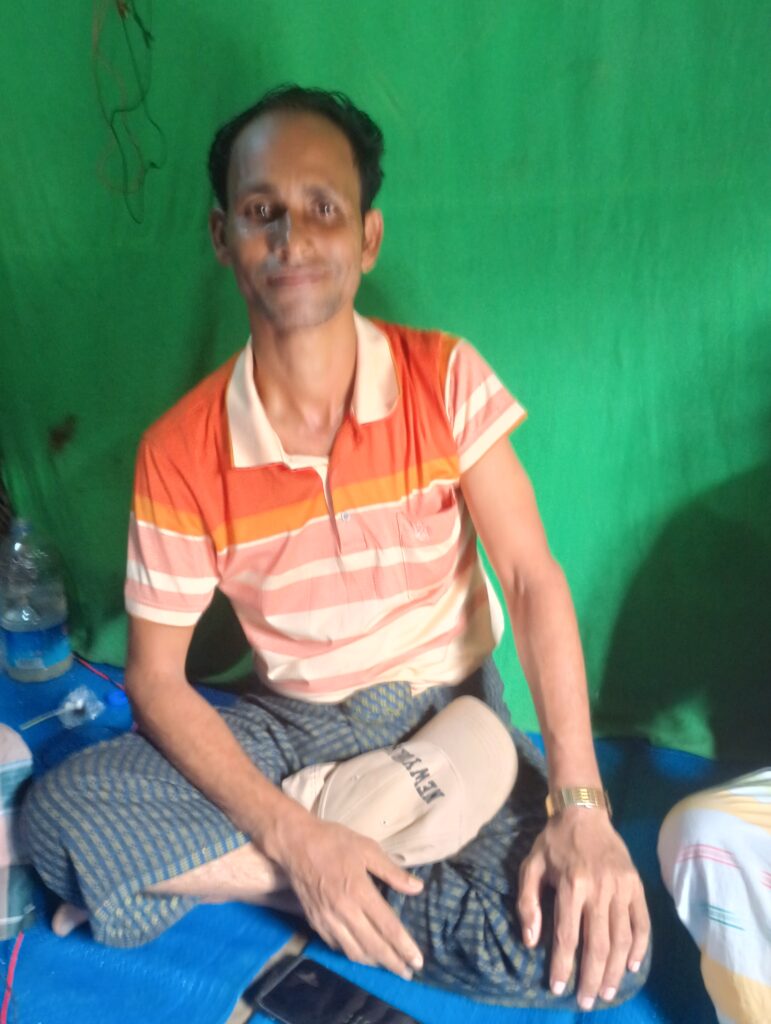
Tahir
Tahir (or “Taher”) is a well-established Rohingya singer, songwriter, and mandolin player who has recorded for the Rohingya Cultural Memory Centre among many other musical projects.
Tahir says, “Nobody knows who will die when. If we die, there will be generations who won’t know about the Rohingya music culture. It is our fundamental responsibility to pass on this culture so that youth can show their Rohingya identity and culture to everyone.”
This is a tarana by Tahir
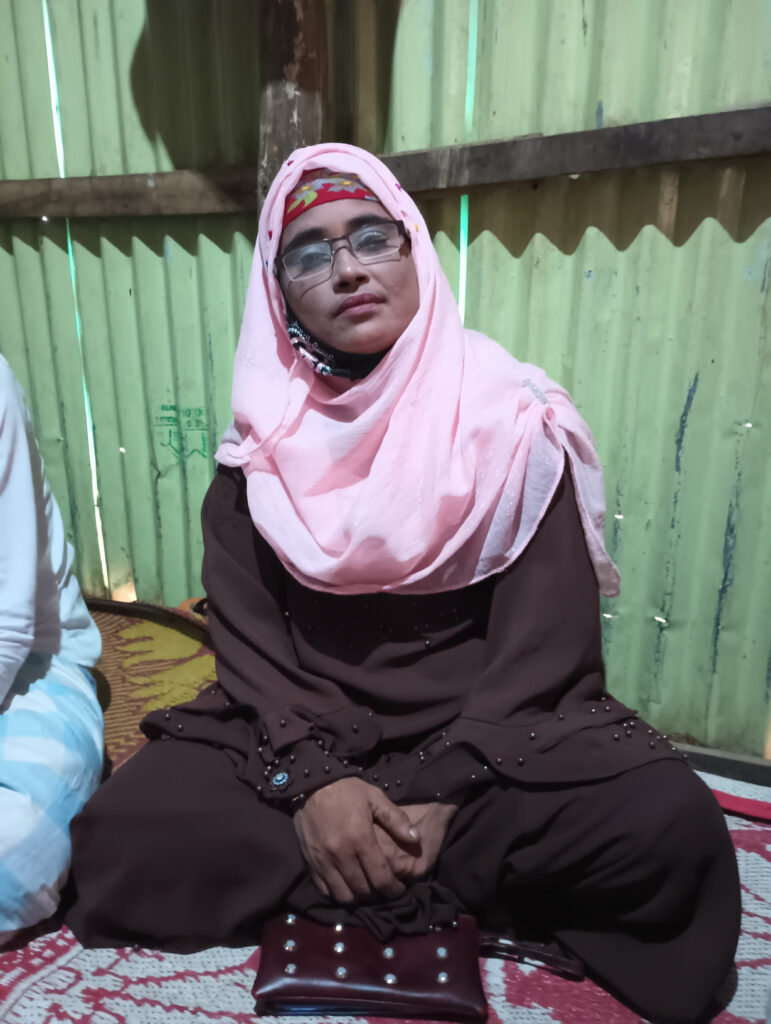
Setara
Renowned and talented Rohingya musician Setara shares songs to raise awareness about important social issues in the Rohingya refugee camps.
This is an incomplete recording of a tarana by Setara.
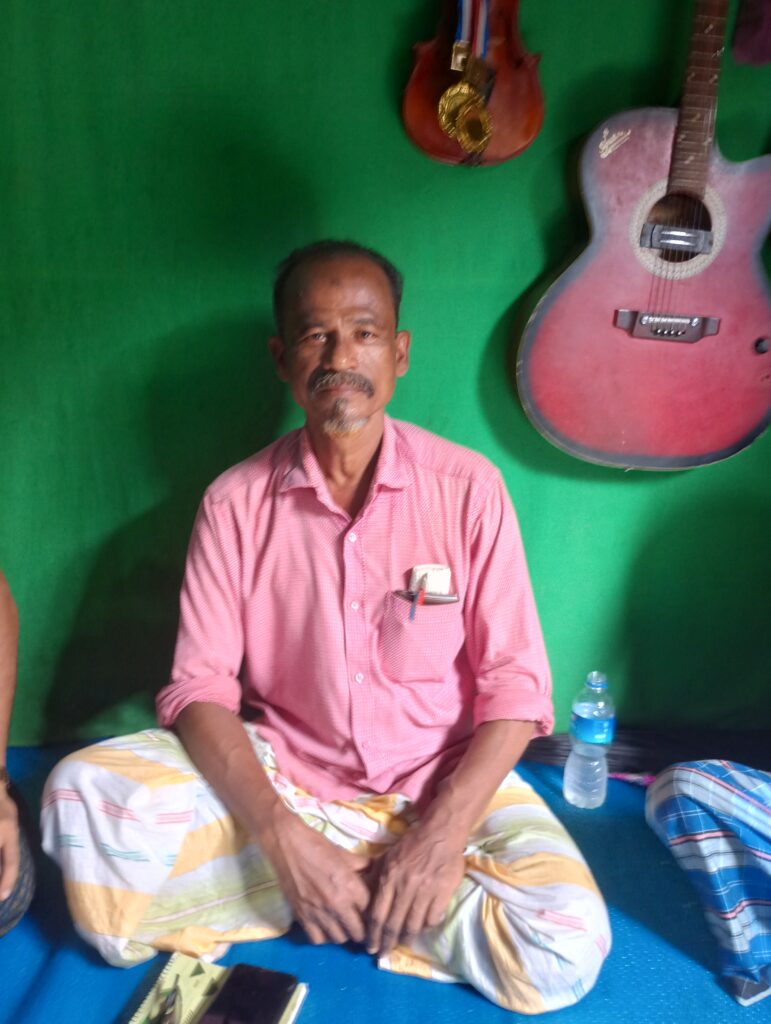
Liyakat
Liyakat Ali is a singer, songwriter, and mandolin player and has taught a generation of younger students, including Osman. He says, “Everybody is waiting for death. We may die today or tomorrow. Our younger generation must know how to play our instruments so our culture stays alive. Every community in the world has a music culture. In the face of people who deny our very existence, our Rohingya music culture is a testament to our place in the world.”
This is an original Rohingya tarana by Liyakat Ali.
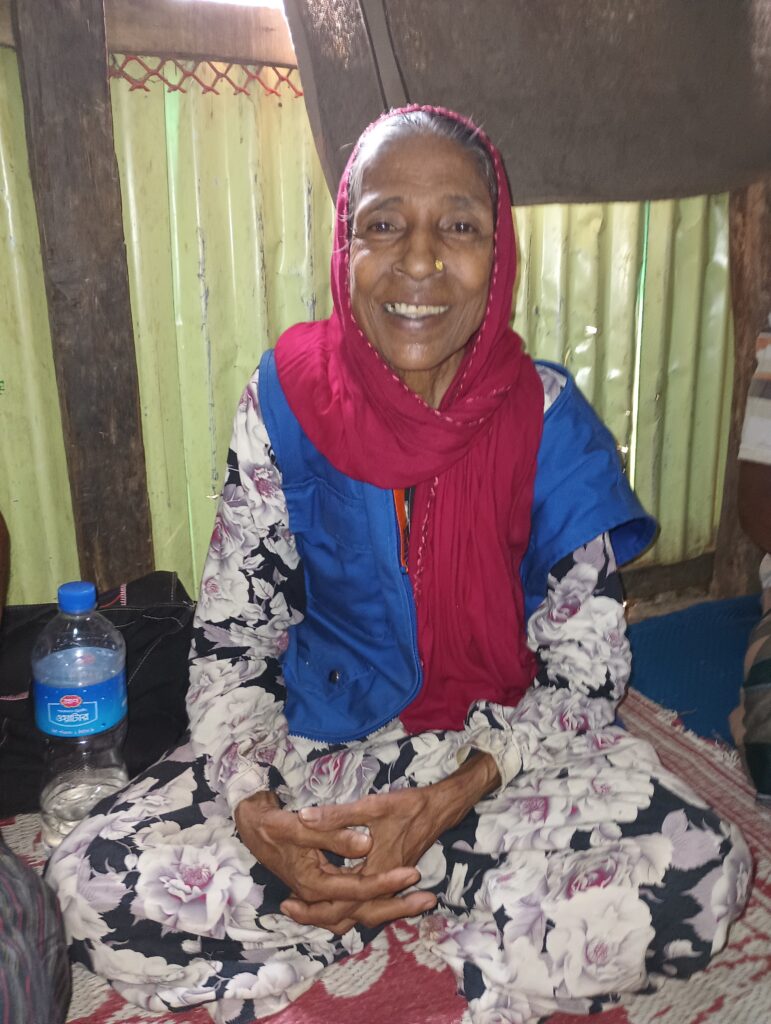
Mustafa
Kamal Mustafa is an in-demand singer, songwriter, and harmonium player who’s collaborated with numerous NGOs including the Rohingya Cultural Memory Centre among many others. Mustafa says, “We women musicians can do all the things that male musicians do.
A long time ago, it was hard to be a woman Rohingya musician. But now, it’s not a barrier. For the new [2017] arrivals [in the refugee camps], there are learning centers that don’t discriminate by gender.
In Myanmar for women musicians it was hard for women as we were discouraged from going outside. In Rakhine State [in Myanmar] there were regional differences in male and female roles.
In Sittwe [where Mustafa is from], there’s no differences between male and female. There are no gendered roles. But in Maungdaw and Buthidaung it’s different. In these towns, the women are culturally discouraged from going outside, making travel difficult. But in the refugee camps, there’s not a gender barrier. Everyone has equal rights.”
This is a Rohingya folk song classic, sung here by Kamal Mustafa.
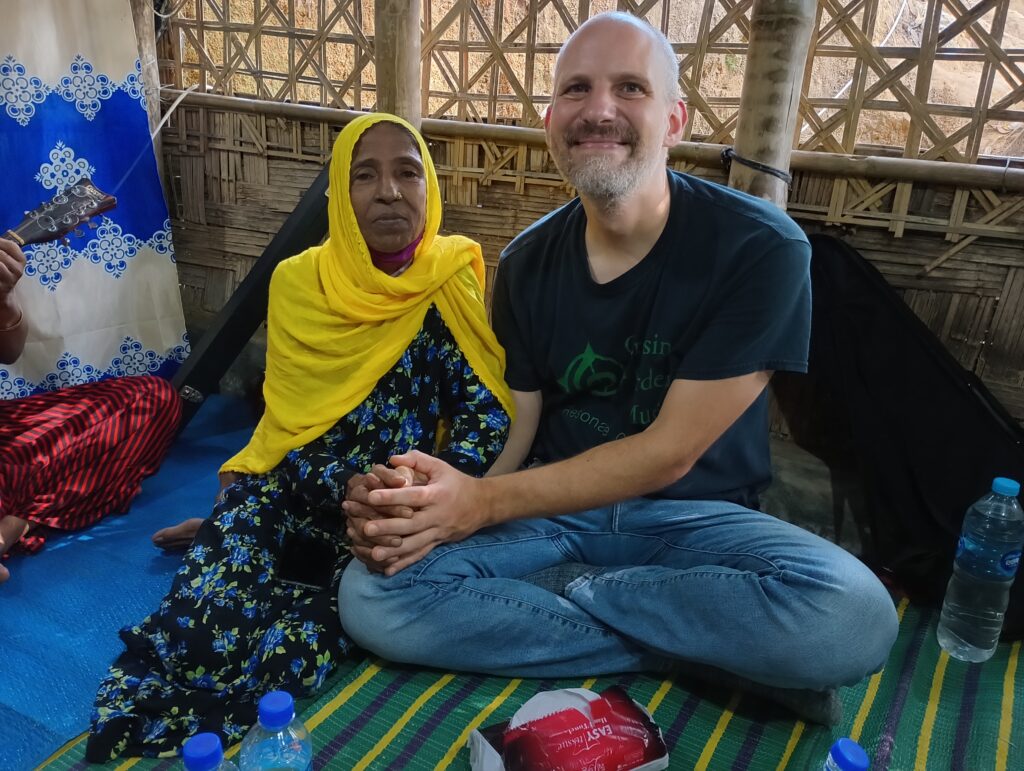
Rohingya refugee musician Kamal Mustafa sits with Crossing Borders Music co-director Tom Clowes. Previously, they had only met over Zoom. Tom shared that her music made him tear up, even before he found out she was singing about the Rohingya Genocide, and that he’s honored to have now met her in person. Mustafa shared with Tom her great appreciation that he came from a very long way away to meet her and the other musicians and learn about them, their musical tradition, and try to help their community, giving up comforts like air conditioning.
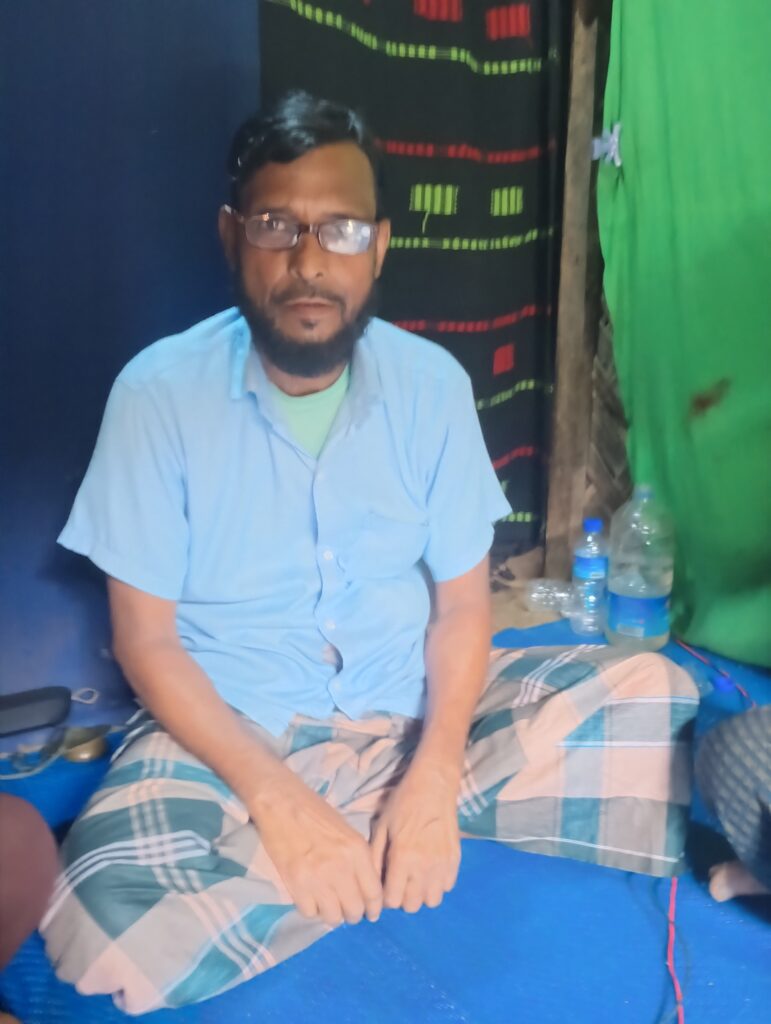
Dildar
Dildar is a zuri (finger percussion) specialist.
On the topic of gender and music, Dildar says, “We should all have equal rights. We should not see any difference in women. Women can contribute equally to our society, just like men.”
Here Dildar features in an original Rohingya Tarana by Tahir, who sings “We are Rohingya. Our citizenship was taken away, so we had to become refugees.”
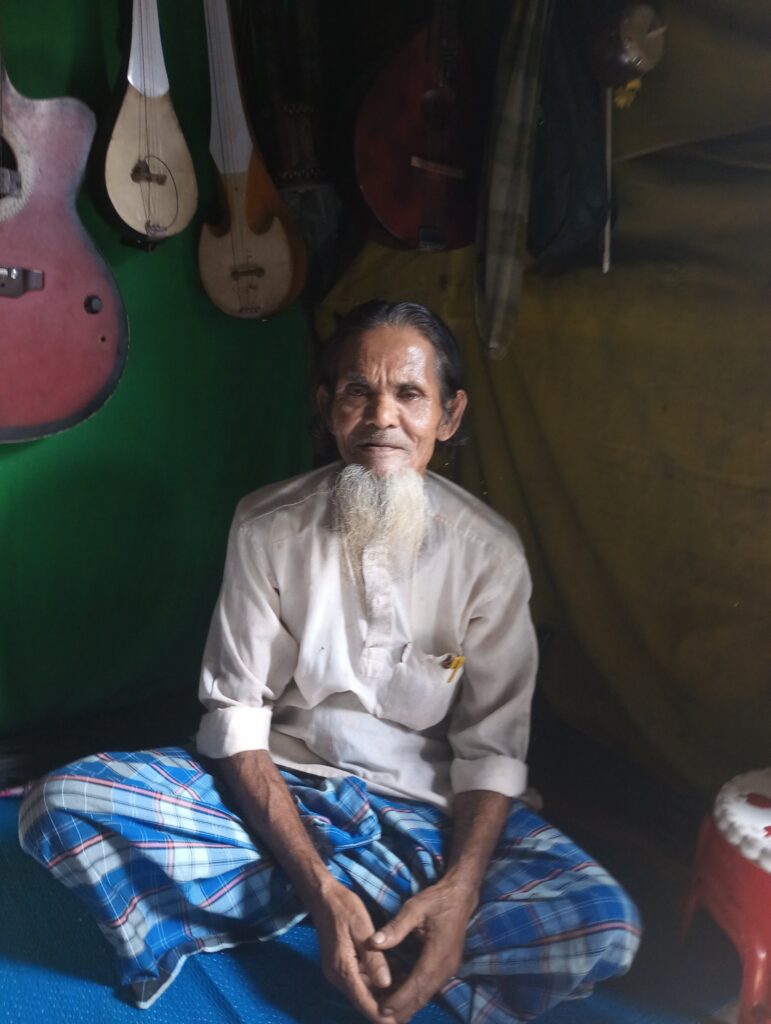
Salam
Mohammed Salam is a Rohingya refugee musician who is a violinist and is working to pass down his knowledge of Rohingya music to younger generations of Rohingya.
He carved his violin’s wooden bow and bridge himself!
Mohammed Salam plays a traditional tune to demonstrate the recorder.
Unusually for Rohingya musicians, Salam also participates in a religious musical practice where he shares devotional music twice weekly. This practice, Sufism, is passed down from parents to children from generation to generation.
Most Rohingya do not consider music to be connected to religion, though some songs teach people religious words.
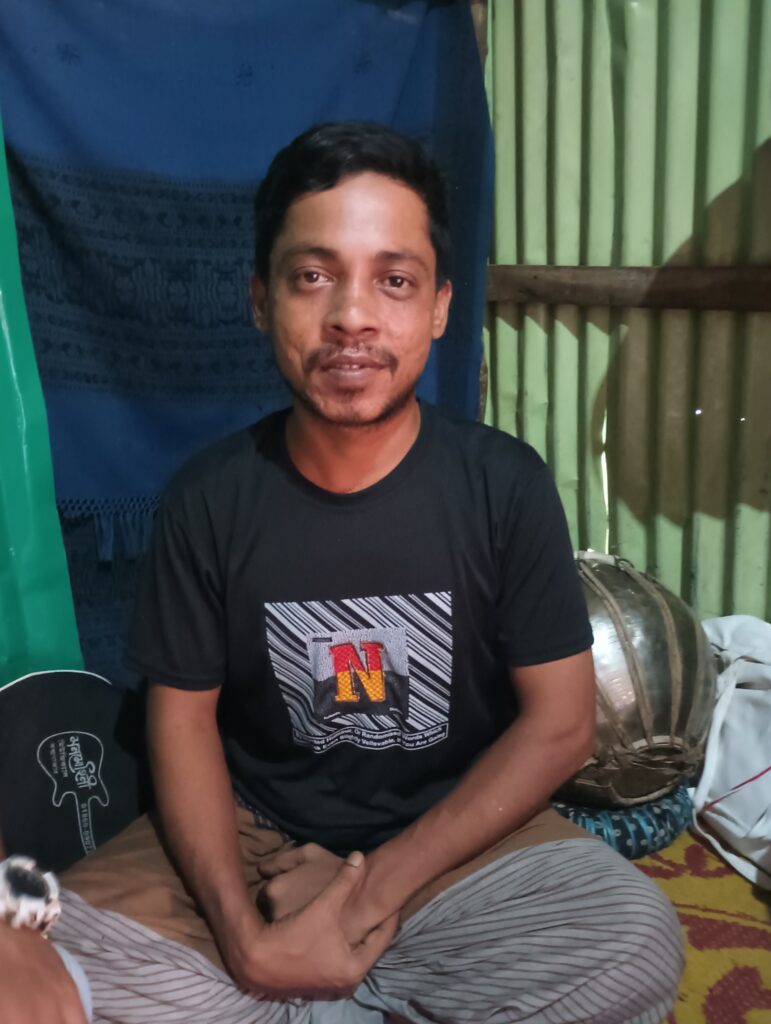
Arif
Arif is a Rohingya percussionist who plays tabla and other drums.
Here Arif plays the Tabla for “Let’s Raise Our Voices for Justice. Thousands of Our Rohingya Brothers and Sisters Were Killed in Bloodshed in Arakan and original tarana by Osman.
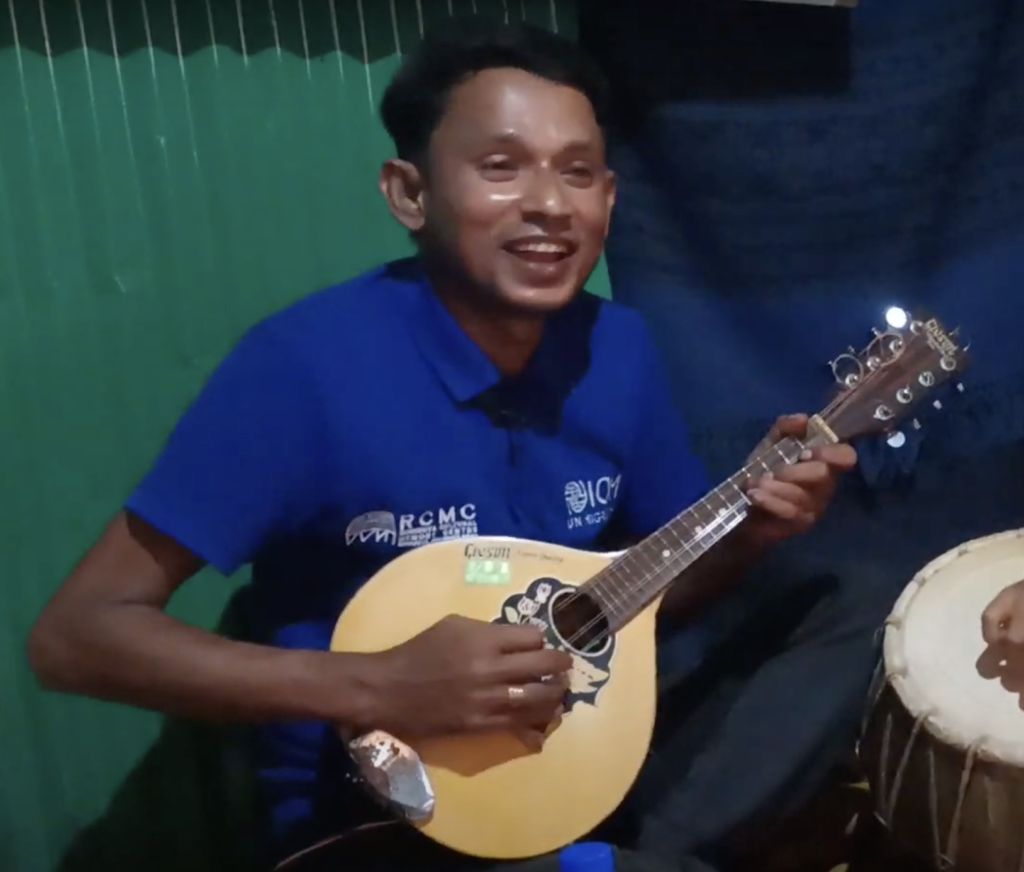
Yousuof
Yousouf is a singer, songwriter, mandolin player who works with the Rohingya Cultural Memory Centre.
“No One Loves You Like I Do” is an original song by Yousuof, who sings it here.
